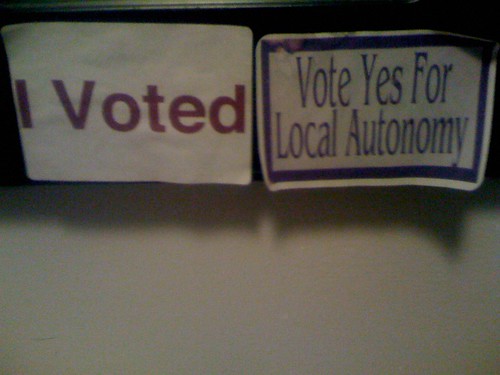C’mon people. I’m in South Los Angeles here. Our school’s Internet moves at just less than a creep. I can’t get a working ethernet cord, log on to social networking sites, youtube, etc. You’ve heard me whine about it before. Obviously most of my students aren’t accessing the Internet at home. Our isle of misfit computers at school is their only (semi-)reliable resource for developing media literacy skills. I don’t say this to bash the equipment at our school, but to criticize the disparity between my students’ opportunities to engage online and students in more affluent neighborhoods.
I continue to hear about amazing things happening in Second Life, about online study groups, and vodcasted lectures. But we’re still stuck in our first, perpetually offline life, like it’s still 1999 and Napster is alive and destroying our dial up connections.
At a recent school focus group meeting, several teachers discussed frustration with technology access on campus. The skills students need to succeed in college and beyond are expanding. Sooner or later someone is going to expect my students to be able to quickly and effortlessly post to a blog, add to a wiki, or collaborate via some sort of social networking protocol. And once again, my school will have failed to prepare them for such a task.
And About those Cameras
Somewhat related to this, I recently wrote about a video experiment I am conducting in my first period class. [If you’re too lazy to read the link, I’m having students in my first period class videotape the lesson everyday. Of course, I say it much more elegantly at the link, so just go over there ya putz!] What I’d like to add is that, by handing the cameras to the students, power and agency is shifted within the classroom. Suddenly, I’m not the one scoping out misbehavior; we are complicit in maintaining order within the classroom. As a result, the camera empowers instead of demeans – unlike the recently installed security cameras that students frequently bemoan.
On Friday, Professor Greg Niemeyer spoke with my students. Part of his talk described the differences between surveillance, co-veillance, and sousveillance. I have a feeling that this is something we will be revisiting on Monday.
Tell people this is awesome:






